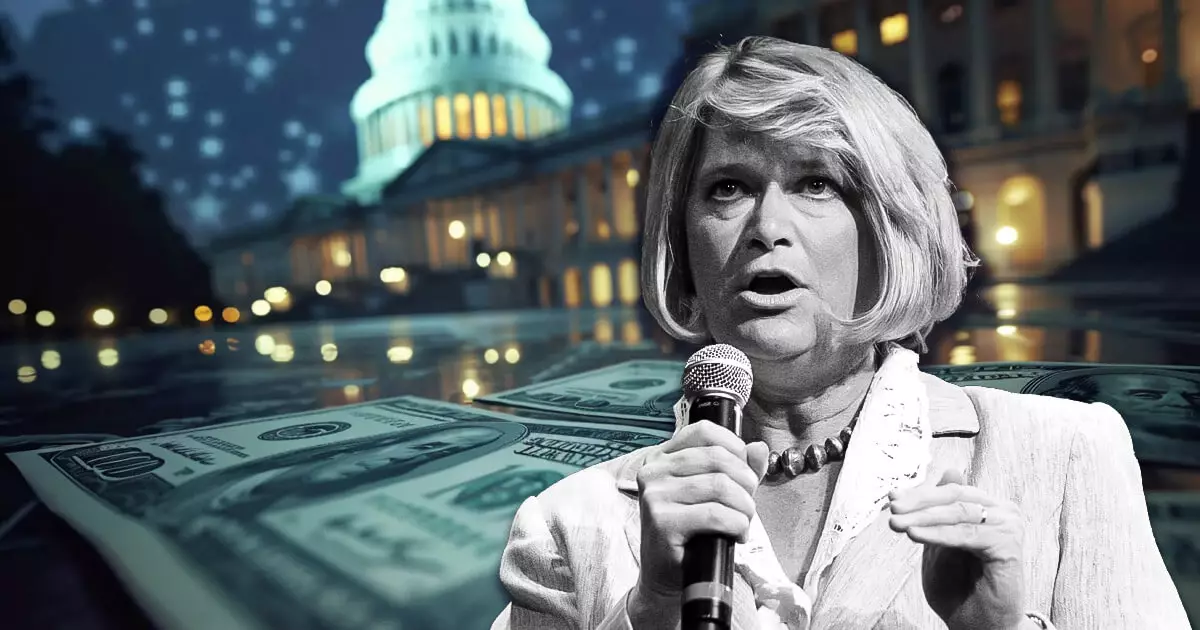The appointment of Michelle “Miki” Bowman as the Vice Chair for Supervision at the Federal Reserve cannot be dismissed as mere bureaucratic footnotes. This confirmation, passed by a razor-thin margin of 48-46, is a clear indication of a shift towards fostering responsible innovation within one of the most dynamic sectors of the economy—digital assets. Senator Cynthia Lummis, a staunch advocate for cryptocurrency and blockchain technologies, has earmarked this appointment as a decisive moment for the future of crypto regulation in the United States. She envisions a “brighter future” for the cryptocurrency sector, which, given its struggles through turbulent regulatory waters, is a sentiment rife with optimism but is also a call for critical examination of the shifts taking place within the financial landscape.
The Role of Evidence-Based Regulation
Bowman’s commitment to evidence-based regulation over political whims is a nuance that should not be underestimated. As the former Governor of the Federal Reserve, she acknowledges that regulation has to adapt concurrently with technological innovations. This is vital because the past regulatory framework, which often treated digital assets as mere anomalies within the banking sector, has proven insufficient. Cryptocurrency is not merely a byproduct of speculation; it bears the potential to redefine how we perceive value and financial transactions in real-time.
Bowman’s perspective emphasizes that regulation should serve to enhance financial systems rather than suffocate them under outdated paradigms. The crypto industry has long clamored for clarity, and her recognition of the need for regulatory structures that promote “sensible innovation” is indeed a refreshing standpoint.
The Impact on Major Financial Institutions
As Vice Chair for Supervision, Bowman’s insights will influence crucial discussions surrounding how banks engage with crypto-related services. With her at the helm, there is an expectation that regulatory frameworks could become more favorable, allowing established financial institutions to explore avenues such as cryptocurrency custody and tokenized asset settlement. The potential to facilitate broader participation from banks in the crypto economy would undeniably serve to legitimize digital assets, moving them from the periphery to mainstream finance.
It would be naive to assume this transition will come without its challenges. Financial institutions will have to navigate a landscape filled with regulatory landmines and public skepticism, yet Bowman’s experience with community banking positions her well to shepherd this transition.
The Industry’s Reaction and Future Prospects
The broader cryptocurrency ecosystem has been holding its breath, looking toward the Federal Reserve for signs of a regulatory framework that harmonizes with emerging technologies. Organizations such as the Crypto Council for Innovation have expressed their enthusiastic support for Bowman, recognizing her unique value proposition as someone who understands both technology and the complex system of regulations that govern financial systems.
With Congress currently debating multiple bills aimed at clearing regulatory fog around areas such as stablecoins and custodial services, Bowman’s role is more pivotal than ever. A constructive regulatory environment allows crypto projects to thrive, empowering innovators while protecting consumers, balancing the often contradictory imperatives of nurturing innovation while safeguarding market integrity.
Challenges Ahead for Crypto Regulation
While optimism pervades the crypto community with Bowman’s ascent, it’s critical not to overlook the hurdles awaiting her. The political climate around cryptocurrencies remains charged with skepticism and conflicting interests. Regulatory clarity is yearned for, but it often gets tangled up in partisan narratives and misinformed public perceptions.
Moreover, the Federal Reserve’s influence doesn’t operate in a vacuum; it’s intertwined with global crypto initiatives and regulatory frameworks. Which begs the question—can Bowman effectively advocate for progressive policies that enable the U.S. to lead rather than lag behind other jurisdictions that are already adopting blockchain technologies?
The stakes are high, and while Bowman’s confirmation has paved the way for potentially transformative policies, the realization of that promise will hinge on her ability to bridge the gap between traditional finance and the world of digital assets. Crypto advocates will be watching closely to see if she can translate her aspirations into tangible outcomes that benefit both innovative tech companies and the American financial system at large.


Leave a Reply